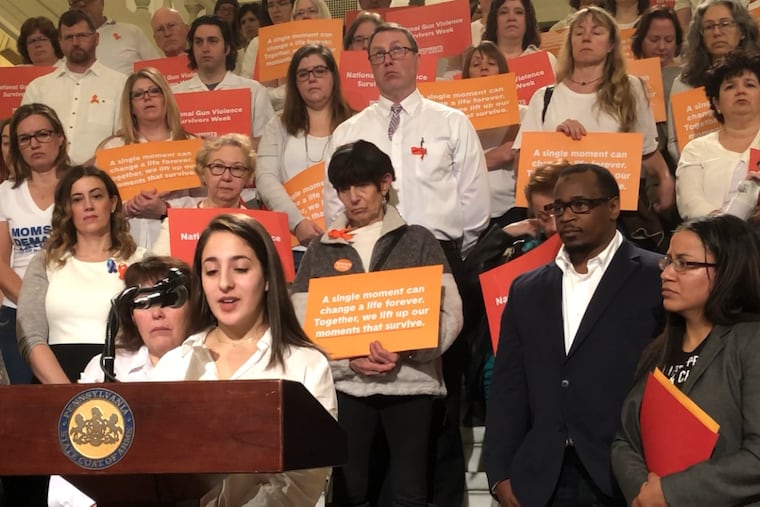Student activist in rural Pa.: Young people are not ‘the future’ | Opinion
While I know people mean well when they call youth the future, I feel resentment and pressure when I hear it — and remember that many youth simply can't vote.

It has become common to refer to young people as “the future.” As a student activist in rural Pennsylvania involved in gun violence prevention and human trafficking awareness, I hear these words a lot.
Fundamentally, they are kind. Today’s youth are excited to make change, capable of taking on challenges, and eager to fight injustice and inequity. However, saying young people are the future discounts the immense power that youth hold in the present, and overlooks the power all people have to enact change. Further, this framing promotes resentment in younger generations and complacency in older ones.
Young people have an integral and unique role in the fight for social justice. We have a facility with social media, and the capability to educate ourselves and others in the blink of an eye. We are the only ones growing up during a clear climate crisis, the new social justice movement, the gun violence epidemic, and the humanitarian crises at our borders, giving us a unique voice and narrative.
» READ MORE: College students in Pennsylvania face new barriers to vote in a pandemic
However, in many ways, the future of our country comes down to the ballot box that many of us are too young to use. Our country must elect candidates who will support rule of law, evidence-based gun policy, police reform and divestment, community-based violence intervention programs, health-care and education reform, and stewardship of the climate. Only by having politicians who will support grassroots efforts, adhere to the rule of law, and promote diversity, equity, and inclusion will the efforts of young people be brought to fruition.
That means the responsibility for “fixing the world” cannot — and should not — rest on young people. For one thing, many of us just can’t vote. And while I know referring to youth as the future is well-meaning, I feel resentment and pressure when I hear it. I don’t want, nor do I have the capability, to fix the world’s problems.
I am trying, though, to do my part. I recently attended the Summer Youth Institute for Gun Violence Prevention through the Johns Hopkins Bloomberg School of Public Health. It was four full days with 50 high school activists throughout the country. It was one of the most informative and empowering experiences I have ever had. We worked directly with faculty, experts, and researchers who brought together their unique areas of expertise. We were presented with cutting-edge research to address death by suicide and domestic violence, and legislation proven to reduce gun violence. We were also introduced to many powerful youth advocates, such as gun violence survivor Destini Philpot. Destini is the coleader and cofounder of Good Kids Mad City Baltimore, a volunteer organization to prevent gun violence in underserved communities through lobbying, create safe spaces for healing, and give mental health support to teens who have suffered from gun violence. When asked about the role of youth in advocacy, Destini said: “Young people are the present.”
» READ MORE: Philadelphia needs to get youth voting | Opinion
Change is made by unity, not by passing the work on to others, nor by refusing to step up and speak out. In the world of advocacy, young people constantly face rejection. We are seen as unknowledgeable and naïve and overshadowed by adults in power. To move past those barriers, we rely on adult allies, and that allyship is symbiotic. Adults need the energy and excitement youth bring to the table. In exchange, we need the experience and stories of adults who have been fighting for equity their whole lives. To make lasting progress, we must understand our history from the mouths of those who lived it. It is crucial for adults in power to recognize the strength of youth, and for youth activists to listen to and work with adults.
Together, young and old, we need to unite for justice and equity. Adults, you have young people like me on your side. We want to continue the work that you started, but we can’t do this without you. In this moment, we are all the present. And we need everyone to remember that if we’re even going to have a future.
Catie Jacobson is a 17-year-old high school junior in Lewisburg, Pa. She is an advocate for gun violence prevention and the codeveloper of a human trafficking awareness program called CTLD.